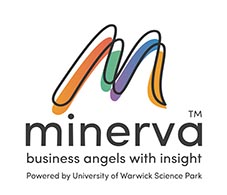Alexis Toft BSc(Hons) Llb MBA LLM CChem CSci
Head of Minerva Business Angels, University of Warwick Science Park
The Chancellor recently announced that there would be no changes to SEIS, EIS, VCT or IHT Business Relief investments. To have a diversified investment portfolio including exposure to potentially higher returns, tax-efficient is advantageous. Investing in what is a risky environment and who’s risk can be somewhat mitigated (but not completely) by investing collectively with other investors in an angel network such as Minerva Business Angels is a potentially useful route. These businesses may be the unicorns and job creators of the future, with Facebook, Uber, Google to name a few.
Tax incentives provide a huge opportunity for investors. There are considerable tax advantages for investing in start-ups and it is important that investors have considered this as part of their overall tax planning (and of course taking the necessary independent financial advice).
The Enterprise Investment Scheme (EIS) and the Seed Enterprise Investment Scheme (SEIS) are but two of a number of government initiatives to encourage innovation by granting private investors a significant tax break when investing in early-stage, ‘high-risk’ companies (Investment Schemes).
SEIS is focused on very early-stage companies and allows an individual to invest up to £100,000 per tax year and to receive a 50% tax break in return. The investor will also benefit from a capital gains tax exemption on any profits that arise from the sale of shares after three years.
EIS, on the other hand, focuses on medium-sized startups. It allows an individual to invest up to £1 million per tax year and to receive a 30% tax break in return. As with SEIS, the investor will also pay no capital gains tax on any profit arising from the sale of the shares after three years.
With both SEIS and EIS, there is no inheritance tax to pay on shares held for at least two years. Finally, if shares are eventually sold at a loss, the investor may offset the loss against their capital gains tax.
Of course, theses businesses are not without risk. Values can go up and down, you must be prepared for losses and exits which yield a return can be elusive. However, where there are losses on disposal – or negligible value claims this to can also be offset against income tax and not just CGT (More information here).
Investors also in this context are self-certificated as set out by the Financial Conduct Authority (Definition) and forms are available from UKBAA (Link here) if you require more detail
Investing can be exciting, exhilarating and it’s great to be a supporter of these exciting entrepreneurs and growing businesses. Sadly angel activity and early investing using the above vehicles are heavily skewed in favour of the South East (HMRC Report, British Business Bank Angel Report). We desperately need those in the Midlands and the North who have had those distinguished careers, run businesses, and exited businesses to consider not only the benefits as outlined above but also the support they can give to come forward. I continue to argue, experience, capability and contacts are equally as valuable as any financial support.
As we emerge from this crisis, if you can help, please help. The entry-level is surprisingly low and never has the demands been so great
